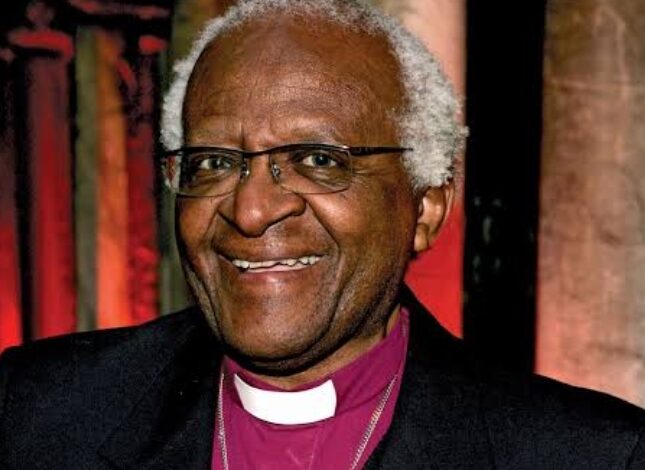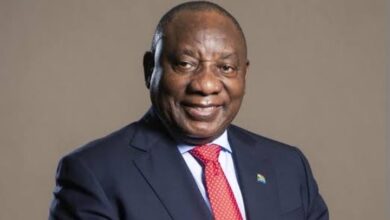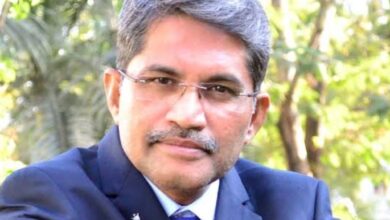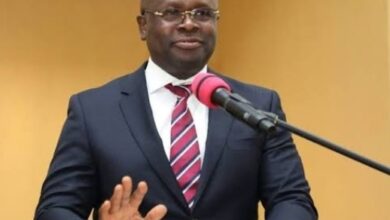Desmond Tutu Biography: Early Life, Education, Age, Career, Marriage, Awards, and Net Worth 2025

Desmond Tutu Biography
Desmond Tutu: In the history of South Africa, many people stood up against the cruel system of apartheid, but very few did so with the same courage, wisdom, and kindness as Archbishop Desmond Tutu. Known across the world as a man of peace, Tutu used his voice, his faith, and his position in the church to fight for equality and human dignity. He was not a politician, yet governments listened to him. He was not a soldier, yet his words were stronger than weapons. To many, he became a symbol of hope during South Africa’s darkest times.
This biography tells the story of Desmond Tutu’s life, from his humble beginnings to his rise as a global icon for justice, his family life, his great achievements, and his lasting legacy.
Read Also: Dr. Edward Omane Boamah: Biography, Education, Career, Wife, Age 2025
Early Life and Family Background
Desmond Mpilo Tutu was born on 7 October 1931 in Klerksdorp, a small town in the Transvaal province of South Africa. His life began in a period when Black South Africans were already facing racial discrimination, and this shaped his future journey.
His father, Zachariah Zelilo Tutu, worked as a teacher in a Methodist school, while his mother Aletta Dorothea Matlhare, worked as a domestic worker and cleaner.
The Tutu family was not wealthy, but they were rich in values. His parents encouraged him to read, study hard, and respect others. They also raised him in the Christian faith, which became the foundation of his life’s mission.
Although Desmond had siblings, their names are not well-documented in history. Growing up, he was a shy but intelligent child who loved reading and showed a deep interest in learning about people and the world.
At the age of 12, he contracted tuberculosis (TB) and had to stay in the hospital for almost two years. This illness could have discouraged him, but instead, it gave him time to reflect on life. He was inspired by the kindness of the doctors and nurses who treated him, and at first, he dreamed of becoming a doctor. However, due to his family’s financial situation, he later turned to teaching and then to the church.
Education Journey
He first enrolled at Pretoria Bantu Normal College, where he earned a teacher’s diploma, and later obtained a Bachelor of Arts degree from the University of South Africa. After teaching for some years, he resigned in protest against the Bantu Education Act, which made education for Black students inferior, and in 1960 he was ordained as an Anglican priest. With the support of the church, he pursued further studies at King’s College London, where he completed both a Bachelor’s and a Master’s degree in Theology; his time in London exposed him to new cultures and ideas of equality, justice, and freedom, which deeply shaped his later struggle against apartheid.
Career and Leadership
Desmond Tutu began as a high school teacher in the 1950s. He was a passionate educator, but the injustice of the apartheid education system made him resign. He believed education should empower students, not limit them.
In 1960, he was ordained as a priest in the Anglican Church. He served in different churches and also taught theology in Lesotho and at universities in South Africa.
In 1975, he became the first Black Dean of St. Mary’s Cathedral in Johannesburg, a very important position at that time.
In 1978, he was appointed the General Secretary of the South African Council of Churches (SACC). This role gave him a powerful platform to speak against apartheid.
Then in 1986, he became the Archbishop of Cape Town, the first Black South African to hold this role. As Archbishop, he was the spiritual leader of millions of Anglicans and also a moral voice for the whole nation.
Desmond Tutu was never afraid to speak the truth, he openly condemned apartheid laws, calling them evil and unjust and supported peaceful protests and international pressure, such as economic sanctions, to force the South African government to change.
Unlike some leaders, he refused violence, always promoting nonviolence and reconciliation.
After the end of apartheid in 1994, newly elected President Nelson Mandela asked Desmond Tutu to lead the Truth and Reconciliation Commission. This commission allowed victims and perpetrators of apartheid crimes to come forward, tell the truth, and seek forgiveness.
This was one of the most important steps in South Africa’s healing process, and Tutu’s leadership made it successful. He always said: “There is no future without forgiveness.”
Marriage and Family Life
Desmond Tutu married Nomalizo Leah Shenxane in 1955. Their marriage was a strong and loving partnership that lasted for more than 66 years. Leah stood by his side through struggles, threats, and victories.
Together, they had four children namely; Trevor Thamsanqa Tutu, Theresa Thandeka Tutu, Naomi Nontombi Tutu, and Mpho Andrea Tutu, a priest.
Major Achievements and Awards
Desmond Tutu received many awards and honors for his lifelong service:
- Nobel Peace Prize (1984), which was for his peaceful fight against apartheid.
- Albert Schweitzer Prize for Humanitarianism (1986).
- Pacem in Terris Award (1987).
- Presidential Medal of Freedom (2009) from U.S. President Barack Obama.
- Templeton Prize (2013).
- Over 100 honorary degrees from universities across the world.
Beyond awards, his greatest achievement was helping to free South Africa from apartheid and guiding the country toward peace and reconciliation.
Net Worth
At the time of his passing in December 2021, Desmond Tutu’s net worth was estimated at $1 million – $3 million. His income mainly came from his salary as an Archbishop, book royalties from works such as “No Future Without Forgiveness” and “God Has a Dream,” international lectures, speaking engagements, and prize money from awards.
Despite this, Tutu lived simply. He did not chase wealth; his greatest treasure was his service to humanity.
Death and Legacy
Desmond Tutu passed away on 26 December 2021 at the age of 90 in Cape Town. His death was met with sadness around the world. Leaders, communities, and ordinary people celebrated his life as one of courage, compassion, and justice. Today, Tutu is remembered as:
- The “Archbishop of the People.”
- A global symbol of peace, forgiveness, and equality.
- A man whose laughter, humility, and faith inspired millions.
His words still guide people today, reminding the world that peace, forgiveness, and justice are stronger than hatred.
Conclusion
The life of Desmond Tutu is a powerful reminder that one person, guided by faith and love, can make a difference in the world. From a small-town boy in South Africa to a Nobel Peace Prize winner and global leader, Tutu showed that courage, forgiveness, and compassion can change history. His story is not only about South Africa but about the whole world’s struggle for justice.
Even though he is gone, his legacy continues to inspire people everywhere to stand against injustice and to believe in the power of forgiveness.



